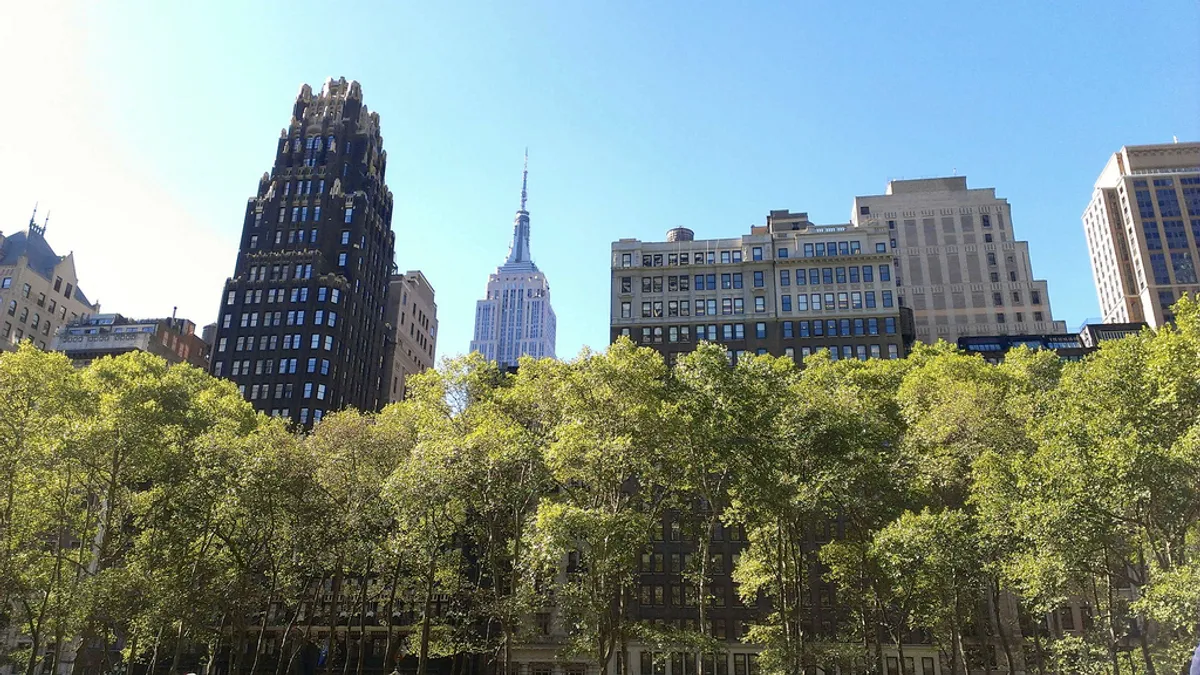Dive Brief:
-
New York Gov. Andrew Cuomo signed a bill into law Friday that opens some individuals to fines when they use home-sharing services like Airbnb to list their residences for short-term rentals, following an extended dispute between the company, the city, affordable housing advocates and the hotel industry, the New York Business Journal reported.
-
The New York legislation makes it illegal to advertise, through a home-sharing service like Airbnb, the leasing of an apartment in a building with three or more units for less than 30 days. The renting of the apartment is already banned under a separate 2010 law, Crain’s New York Business reported, which added that renting out a room or a couch in those types of properties is still considered above-board.
-
Airbnb responded immediately, filing suit in a federal district court in New York. It has previously sued San Francisco and Santa Monica, CA, after those cities passed legislation targeting the home-sharing website’s services.
Dive Insight:
Critics contend that home-sharing services like Airbnb take otherwise-affordable rental and for-sale properties off the market, making them available to short-term residents and travelers at competitive rates that aren’t meant for locals. New York City is Airbnb’s largest U.S. market, and the company has said the new law could severely limit its growth there, according to The New York Times.
The company is facing a similar battle in San Francisco. There, city officials have said that a tight housing market and lack of affordable inventory means that home-sharing services cut into available residences for the city’s contracting middle class. In June, San Francisco passed legislation that would charge home-sharing services for allowing unregistered users to list their property online. Individuals currently seeking to set up a short-term rental are supposed to sign up and pay a fee with the city, but most don’t comply.
Advocates say there’s room for both affordable housing and home-sharing websites — assuming that new construction picks up. Gains in multifamily — the best bet for adding new inventory in sufficient volume to tight urban markets — over the past few years was expected to slow down in 2016, and it did. The sector drove down September’s overall housing starts figure, taking a 38.9% dive during the month to an annualized rate of 250,000 starts — 42.5% off of the year-ago pace.
In its 2017 construction market outlook released this week, Dodge Data & Analytics forecast a 5% year-over-year decline in multifamily starts to 445,000 units annually during 2016 and a 2% drop in 2017 to 435,000 units as renters, particularly those in the millennial generation, shift from renting to homeownership.













